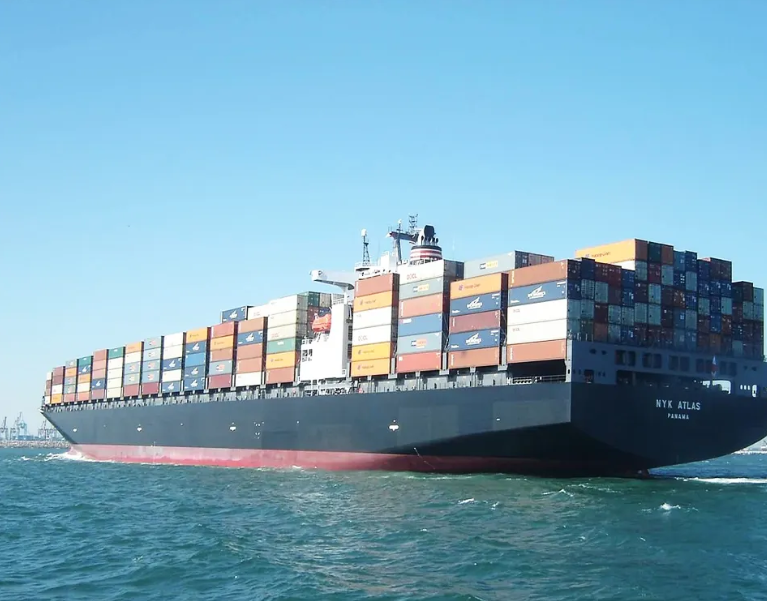Maximizing Supply Chain Efficiency Through Expert Logistics Partners
In today's interconnected global marketplace, businesses face increasing pressure to optimize their shipping operations while maintaining cost-effectiveness. Global freight forwarders have emerged as essential partners in this quest, offering comprehensive solutions that help companies navigate the complex world of international logistics while significantly reducing their shipping expenses. These specialized logistics experts leverage their extensive networks, industry knowledge, and technological capabilities to streamline supply chains and create substantial cost savings for businesses of all sizes.
The role of global freight forwarders extends far beyond simple cargo transportation. They serve as strategic partners who understand the intricate dynamics of international trade, customs regulations, and supply chain optimization. By utilizing their expertise, businesses can transform their shipping operations from a cost center into a competitive advantage, all while maintaining reliability and efficiency in their global distribution networks.
Core Services and Cost-Saving Strategies
Route Optimization and Carrier Selection
Global freight forwarders excel at analyzing shipping routes and selecting the most cost-effective transportation options. They maintain relationships with multiple carriers across different modes of transport, allowing them to negotiate better rates and identify the most efficient routing solutions. This network of connections enables them to compare prices, transit times, and service quality across various carriers, ensuring businesses receive the best value for their shipping investment.
Through sophisticated route optimization algorithms and years of industry experience, global freight forwarders can consolidate shipments, minimize empty legs, and reduce transit times. These optimizations lead to significant cost savings while maintaining or even improving delivery performance. The ability to choose between air, ocean, rail, and road transport – or a combination thereof – ensures that each shipment travels via the most economical method without compromising on timing requirements.
Consolidation and Load Optimization
One of the most effective ways global freight forwarders reduce shipping costs is through cargo consolidation. By combining multiple smaller shipments into full container loads, they help businesses avoid the premium rates associated with less-than-container-load (LCL) shipping. This consolidation service is particularly valuable for small and medium-sized enterprises that may not generate enough volume to fill entire containers on their own.
Professional load planning and optimization ensure maximum utilization of container space, reducing the number of containers needed and, consequently, the overall shipping costs. Global freight forwarders employ advanced technology and expertise to calculate the most efficient loading patterns, considering factors such as weight distribution, cargo compatibility, and handling requirements.

Technology and Documentation Management
Digital Solutions for Enhanced Efficiency
Modern global freight forwarders leverage cutting-edge technology to streamline operations and reduce costs. Their digital platforms provide real-time tracking, automated documentation processing, and comprehensive shipping analytics. These technological solutions minimize manual intervention, reduce errors, and accelerate the entire shipping process, resulting in both direct and indirect cost savings for businesses.
Advanced transportation management systems (TMS) enable better planning, execution, and optimization of shipping operations. These systems can automatically identify cost-saving opportunities, track performance metrics, and generate detailed reports that help businesses make data-driven decisions about their shipping strategies.
Customs Compliance and Documentation
Navigating international customs requirements can be complex and costly if not managed properly. Global freight forwarders possess extensive knowledge of customs regulations and documentation requirements across different countries. Their expertise helps prevent costly delays, fines, and storage charges that can result from incomplete or incorrect documentation.
By managing all necessary paperwork, permits, and certificates, freight forwarders ensure smooth customs clearance and reduce the risk of shipment holds or inspections. This efficiency in documentation handling translates to faster transit times and lower overall shipping costs for businesses.
Strategic Partnership Benefits
Volume-Based Advantages
Global freight forwarders handle massive volumes of cargo across their client base, giving them substantial negotiating power with carriers. This collective buying power allows them to secure preferential rates and service levels that individual businesses might not be able to achieve on their own. These volume-based discounts are then passed on to their clients, resulting in significant cost savings.
Additionally, freight forwarders can often provide access to guaranteed space allocations during peak seasons, helping businesses avoid the premium rates typically associated with last-minute bookings or capacity shortages. This strategic advantage ensures more predictable shipping costs throughout the year.
Risk Management and Insurance
Professional freight forwarders help businesses minimize risks associated with international shipping through comprehensive insurance coverage and risk management strategies. Their expertise in cargo protection and insurance requirements helps prevent losses and ensures adequate coverage at competitive rates. This proactive approach to risk management can lead to substantial cost savings by avoiding potential claims and damages.
Furthermore, global freight forwarders maintain contingency plans for various scenarios, from natural disasters to political unrest, helping businesses navigate disruptions while minimizing additional costs and delays.
Frequently Asked Questions
How do global freight forwarders determine the best shipping routes?
Global freight forwarders analyze multiple factors including distance, transit time, carrier reliability, cost, and potential bottlenecks to determine optimal shipping routes. They utilize advanced software systems and draw upon extensive industry experience to compare various options and select the most cost-effective solutions that meet specific delivery requirements.
What makes freight forwarders more cost-effective than direct carrier booking?
Freight forwarders offer cost advantages through their bulk purchasing power, established carrier relationships, and ability to consolidate shipments. Their expertise in route optimization, documentation management, and customs clearance helps avoid costly delays and penalties, while their technology platforms enhance operational efficiency and reduce administrative costs.
How can businesses maximize their partnership with freight forwarders?
To maximize benefits, businesses should maintain open communication with their freight forwarders, share accurate forecasts, and provide detailed shipment requirements. Regular performance reviews, feedback sessions, and strategic planning meetings help ensure continuous improvement and optimal cost savings. Establishing long-term partnerships often leads to better rates and priority service levels.


